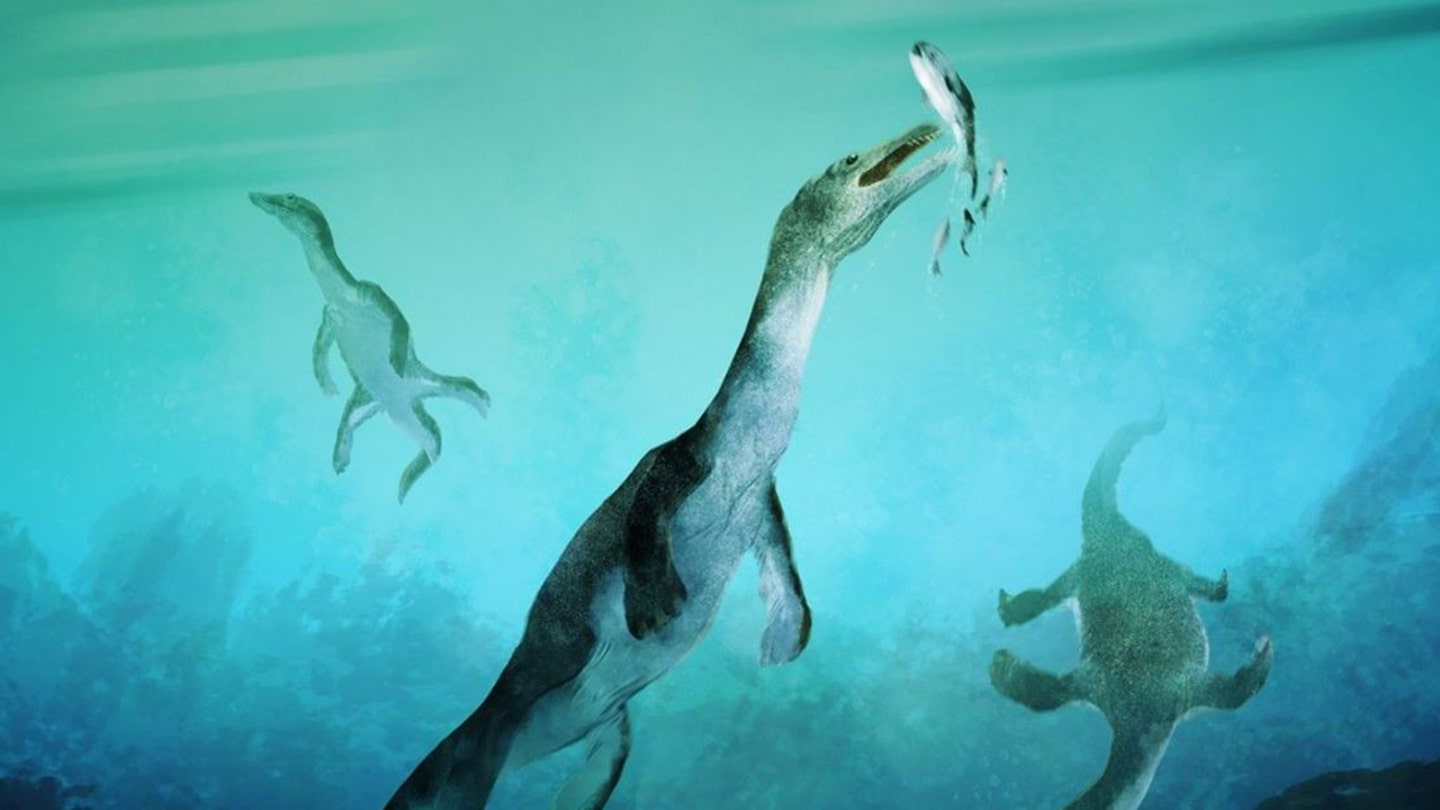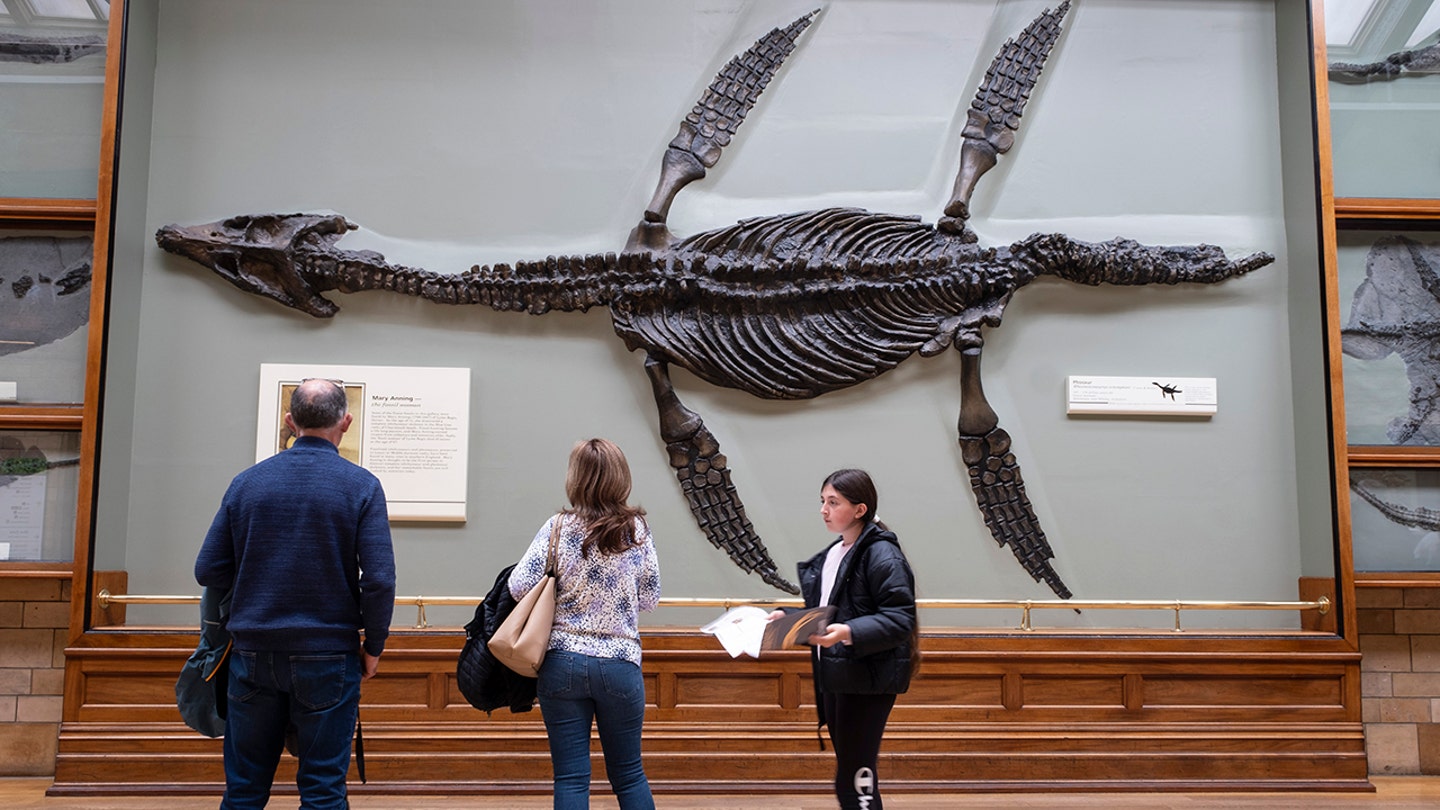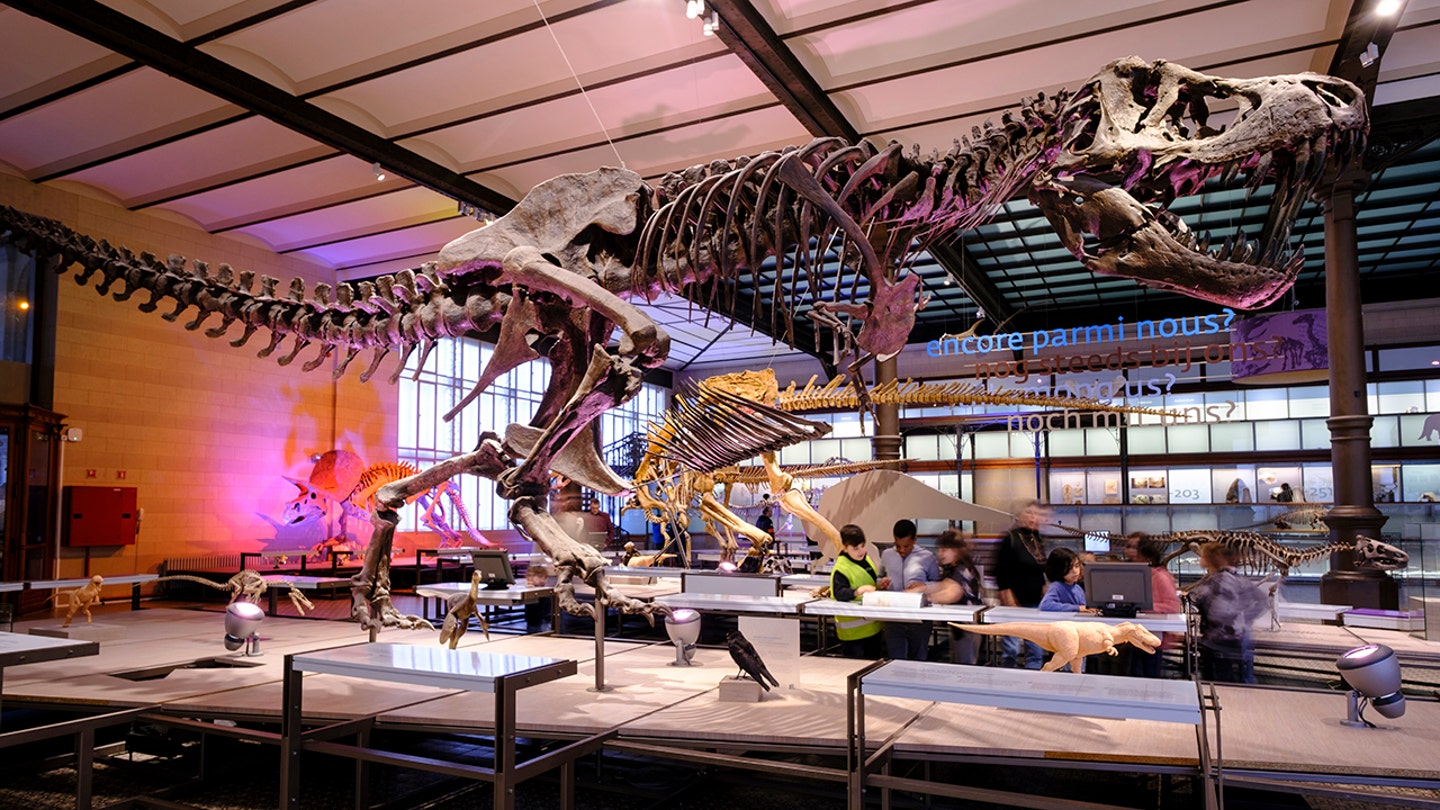A 246-million-year-old reptile fossil discovered by scientists in New Zealand has been identified as the oldest marine reptile fossil found in the southern hemisphere, according to a Swedish museum.
The vertebrae of a notosaurus, a type of sauropterygian, an extinct aquatic reptile that lived during the Triassic period at the dawn of the dinosaurs, was first excavated from a rock in 1978 but wasn’t identified until recently, according to a release from the Museum of Evolution. of Uppsala University in Sweden.
Almost 252 million years ago, reptiles invaded the seas after a catastrophic mass extinction that ushered in the age of the dinosaurs.
“Evidence for this evolutionary milestone has only been discovered in a few places around the world: the Arctic island of Spitsbergen, northwestern North America, and southwestern China,” the university said.
LOCICERATOPS, AMAZING NEW DINOSAUR SPECIES FOUND IN MONTANA, RESEARCHERS SAY

An artist’s rendering of a notosaur swimming near what is now New Zealand 246 million years ago. (Stavros Kundromichalis / Uppsala University Museum of Evolution)
The bead was excavated from a rock in a stream bed at the foot of Mount Harper in New Zealand’s South Island, the release said, adding that “this discovery has shed new light on previously unknown records of early reptiles of the sea from the southern hemisphere.”
Notosaurs were ancestors of Plesiosaurs and could grow up to about 23 feet in length. Plesiosaurs first appeared about 203 million years ago.

Giant Pliosaur Fossil at the Natural History Museum in London. Notosaurs were ancestors of Plesiosaurs. (Mike Kemp/In Pictures via Getty Images)
Notosaurs swam on four limbs and had conical teeth to catch fish and squid.
“The New Zealand Notosaurus was discovered during a geological survey in 1978, but its significance was not fully recognized until paleontologists from Sweden, Norway, New Zealand, Australia and East Timor combined their expertise to examine and analyze the bone. and other related fossils.” said the university.
EXPERT SAYS ASSYRIAN CAMP LOST TIMES FOUND TIMES SUPPORTS BIBLICAL ACCOUNT
Uppsala University paleontologist Dr. Benjamin Kear, who is the lead author of the study, said in a statement that the notosaur fossil is more than 40 million years older than any sauropterygian fossil previously discovered in the Southern Hemisphere.
“We show that these ancient marine reptiles lived in a shallow coastal environment teeming with marine creatures within the southern polar circle at that time,” he said.

The skeleton of a Tyrannosaurus rex is seen at the Dinosaur Gallery of the Royal Institute of Natural Sciences in Belgium on April 7, 2023, in Brussels. (Thierry Monasse/Getty Images)
He said the fossil has completely changed scientists’ understanding of how notosaurs swam from one end of the Earth to the other.
“Using a time-calibrated evolutionary model of global sauropterygian distributions, we show that notosaurs originated near the equator, then rapidly spread both north and south at the same time that complex marine ecosystems were restored after the mass extinction cataclysmic that marked the beginning of the Age of Dinosaurs,” said Kear.
CLICK HERE TO GET THE FOX NEWS APP
He added that “extreme global warming” during the dawn of the age of dinosaurs allowed “these marine reptiles to flourish at the South Pole. This also suggests that the ancient polar regions were a possible route for their earliest global migrations, just as The epic transoceanic journeys undertaken by whales today undoubtedly have more fossil remains of long-extinct sea monsters waiting to be discovered in New Zealand and elsewhere in the southern hemisphere.